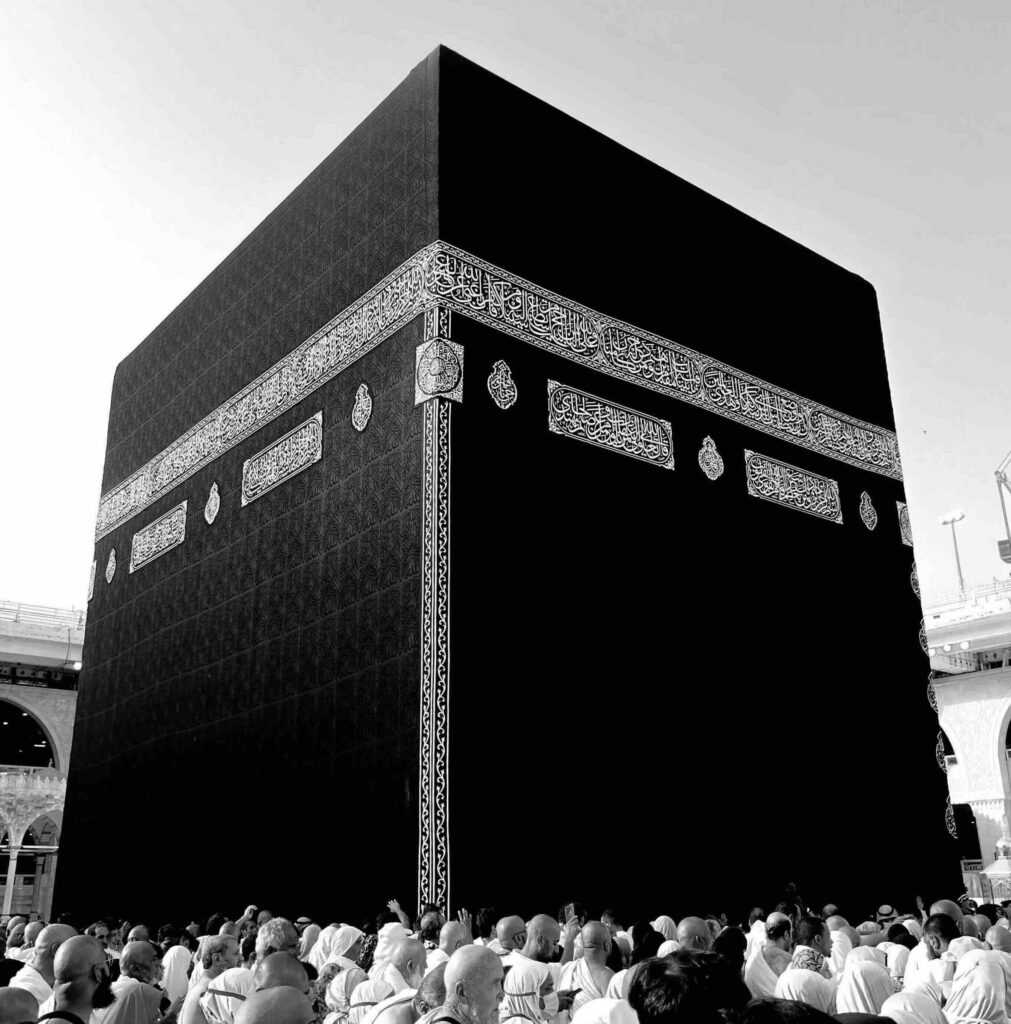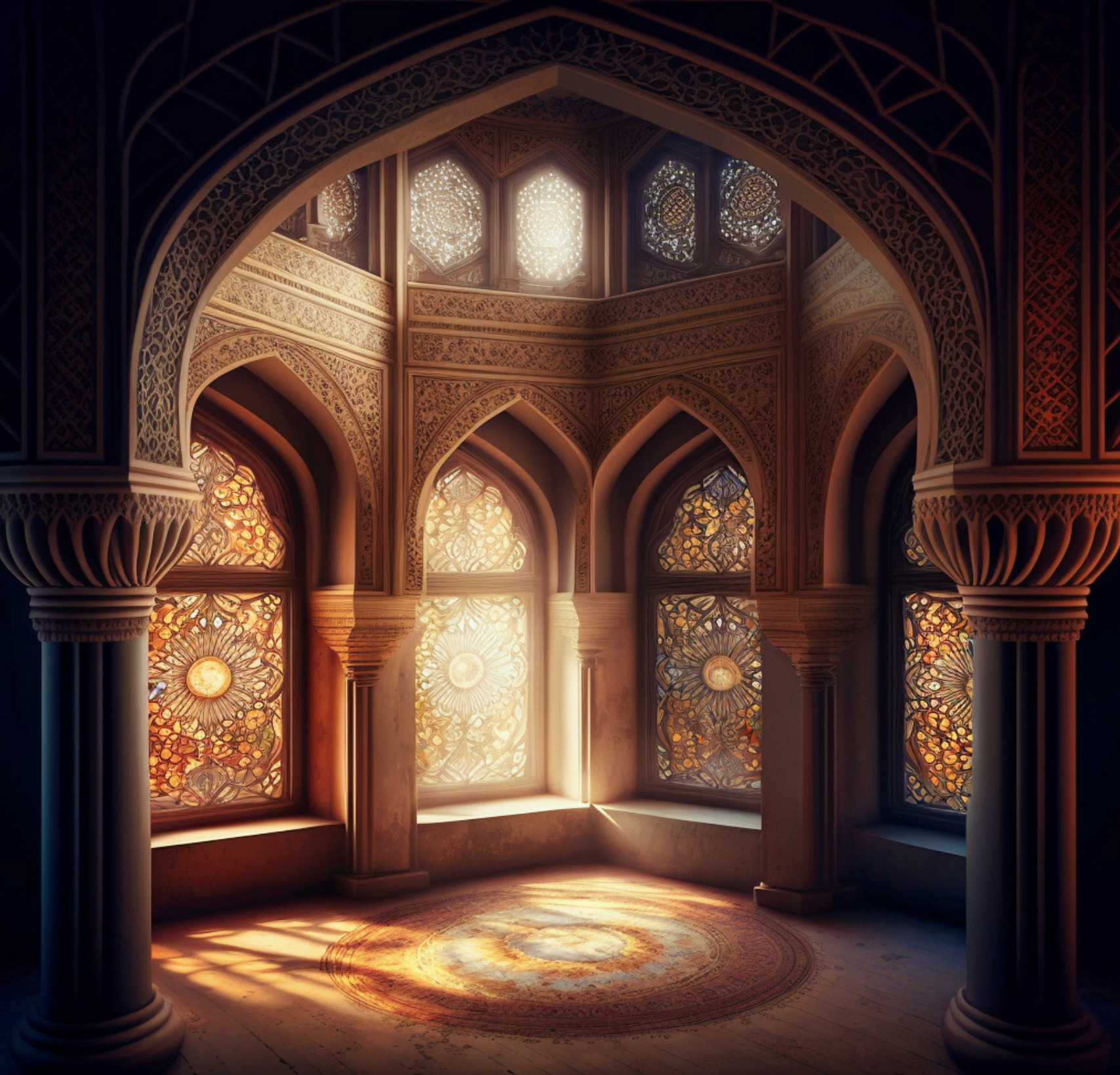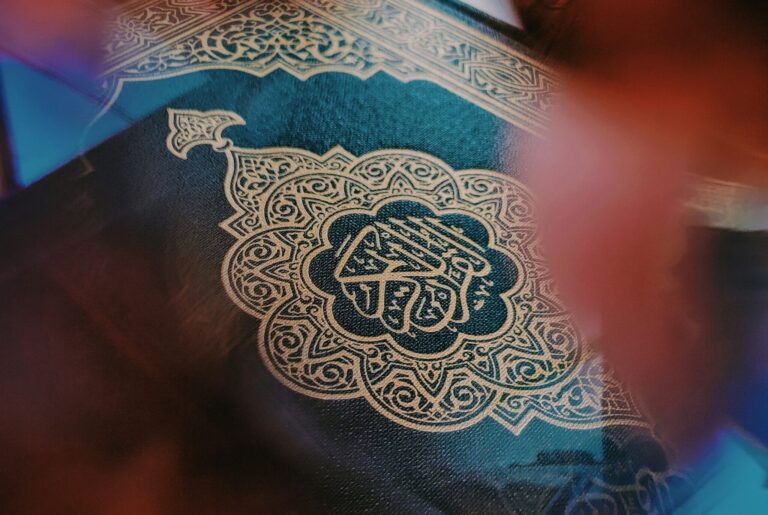Articles
The Hajj Explained
- BY Ustaz Hidir Sulaimee
- ON

The Hajj Explained
Every year, millions of Muslims from around the globe embark on a journey of a lifetime, a pilgrimage that traces back to the time of Prophet Ibrahim (Abraham) and his family. This journey is the Hajj, the fifth pillar of Islam, and one of the most profound spiritual experiences a Muslim can undertake.
For those who haven’t had the opportunity to participate, the Hajj may seem like a distant, mysterious ritual. However, its significance, rituals, and historical context make it a cornerstone of Islamic faith and a deeply enriching experience for those who partake.
In this article, we’ll delve into the depths of the Hajj, exploring its history, its rituals, and the profound spiritual meaning it holds for Muslims worldwide. Join us as we unravel the journey of the Hajj, a journey like no other.
What is Hajj in Islam?
Hajj is considered the fifth pillar of Islam, and it is an obligatory act of worship for every able-bodied and financially capable Muslim to perform at least once in their lifetime.
بُنِيَ الإسْلَامُ علَى خَمْسٍ: شَهَادَةِ أنْ لا إلَهَ إلَّا اللَّهُ وأنَّ مُحَمَّدًا رَسولُ اللَّهِ، وإقَامِ الصَّلَاةِ، وإيتَاءِ الزَّكَاةِ، والحَجِّ، وصَوْمِ رَمَضَانَ
“Islam is built upon five: to testify that there is no god but Allah and that Muhammad is the messenger of Allah,
to establish prayer, to give Zakat, to perform Hajj, and to fast the month of Ramadan.” (Sahih Al-Bukhari)
وَلِلَّهِ عَلَى ٱلنَّاسِ حِجُّ ٱلْبَيْتِ مَنِ ٱسْتَطَاعَ إِلَيْهِ سَبِيلًا
“Pilgrimage to this House is an obligation by Allah upon whoever is able among the people.” (Surah Ali-’Imran, 3:97)
In terminological terms, Hajj is the journey undertaken by Muslims to visit the Kaaba, the sacred House of Allah in Mecca, to perform specific rituals known as ‘Manasik’. These rituals include Tawaf, the act of walking around the Kaaba seven times, as well as Sa’i, which involves walking or running between the hills of Safa and Marwah seven times. Other rites include standing at Arafah, and stoning the Jamarat, the stone pillars representing Shaytan, at Mina.
Hajj takes place during Dhul Hijjah, the 12th and final month, and begins two days before Eid ul-Adha and through the three-day festival of the sacrifice. That means that Hajj lasts for five days in total.
The Incredible History of Hajj
This sacred journey traces its origins back to the time of Prophet Ibrahim a.s. In his later years, Prophet Ibrahim a.s was commanded by Allah s.w.t to take his wife Hajar and their infant son Ismail to the barren plains of Mecca, only to leave them to tend for themselves. Leaving them with only dates and water, Hajar, deeply distressed, called out to him repeatedly, asking, “To where are you going? To whom will you leave us?” In desperation, she asked, “Has Allah commanded you to do this?” When Ibrahim confirmed that it was indeed Allah’s command, Hajar, being a devout woman of faith, responded, “If that is the case, then Allah will not forsaken us.
With unwavering trust in Allah s.w.t, Hajar began her search for sustenance. She tirelessly ran between the hills of Safa and Marwa seven times. According to one narration, Angel Jibril descended and struck the ground with his wing, causing the miraculous Zamzam spring to gush forth. This event is commemorated in the Sa’i, the running between Safa and Marwa, performed by Muslims during Hajj.
Years later, Ibrahim returned to Mecca to reunite with Hajar and Ismail. Shortly after his arrival, Ibrahim had a dream in which Allah commanded him to sacrifice his son. Despite the immense difficulty of this test, both Ibrahim and Ismail submitted willingly to Allah’s will. Ibrahim took his son to a mountain, laid him face down on a rock, and prepared to sacrifice him. However, just as he was about to do so, Allah commanded the knife not to cut and informed Ibrahim that he had passed the test. A ram was provided as a substitute for Ismail, and this event laid the foundation for the animal sacrifices performed by Muslims at the end of Hajj.
As Ismail grew older, Allah commanded Ibrahim and his son to build the Kaaba, the sacred House of Allah on earth. Upon completing this monumental task, Allah instructed Ibrahim to call people to perform the pilgrimage of Hajj. Despite the small size of Mecca and its remote desert location, Ibrahim obeyed, and his call has been answered through the ages.
Today, millions of Muslims from all over the world gather annually to visit the House of Allah and follow in the footsteps of Ibrahim. During his pilgrimage, Ibrahim was confronted by Satan, who tried to divert him from his path. In defiance, Ibrahim threw stones at Satan, symbolizing his rejection of evil. This act is reenacted by Muslims during Hajj in the ritual of Rami, where they cast stones at pillars representing Satan.
These significant events in Ibrahim’s life have become the core rituals of Hajj. In many ways, Hajj is a celebration of Ibrahim’s life and an embodiment of his journey. Allah s.w.t commands believers in the Quran to follow the path of Ibrahim. فَاتَّبِعُوا مِلَّةَ إِبْرَاهِيمَ – “So follow the religion of Ibrahim.” Every year, Muslims walk in the footsteps of one of the greatest men to have ever lived, Ibrahim a.s. May the peace and blessings of Allah be upon Ibrahim, his family, and the noble Messenger Muhammad ﷺ.
The Types of Hajj
There are three types of Hajj: Tamattu’, Ifrad, and Qiran.
Tamattu’ involves entering ihram for ‘Umrah only during the months of Hajj (Shawwal, Dhu’l-Qi’dah, and Dhu’l-Hijjah). Upon reaching Makkah, the pilgrim performs tawaf and sa’i for ‘Umrah, shaves or cuts their hair, and exits ihram. On the 8th of Dhu’l-Hijjah, they enter ihram for Hajj only, completing all the actions of Hajj. Tamattu’ includes a complete ‘Umrah and a complete Hajj.
Ifrad means entering ihram for Hajj only. Upon reaching Makkah, the pilgrim performs tawaf al-qudum and sa’i for Hajj but does not shave or cut their hair, remaining in ihram until exiting after stoning Jamrat al-‘Aqabah on Eid day. If they delay the sa’i of Hajj until after the tawaf of Hajj, it is permissible.
Qiran means entering ihram for both ‘Umrah and Hajj together, or entering ihram for ‘Umrah first then including Hajj in that before starting the tawaf of Hajj. This is done by intending that the tawaf and sa’i will be for both Hajj and ‘Umrah.
The actions in Qiran are the same as Ifrad, except that the pilgrim in Qiran must offer a sacrifice, which is not required in Ifrad.
The Conditions of Hajj
The scholars (may Allah have mercy on them) have stated the conditions of Hajj being obligatory, which, if they are met, make it obligatory for a person to perform Hajj, and without them Hajj is not obligatory.
There are five such conditions: being Muslim, being of sound mind, being an adult, being free and able, financially and physically.
Benefits & Virtues of Hajj
Allah s.w.t. says in the Quran:
وَأَذِّن فِى ٱلنَّاسِ بِٱلْحَجِّ يَأْتُوكَ رِجَالًا وَعَلَىٰ كُلِّ ضَامِرٍ يَأْتِينَ مِن كُلِّ فَجٍّ عَمِيقٍ. لِّيَشْهَدُوا۟ مَنَـٰفِعَ لَهُمْ وَيَذْكُرُوا۟ ٱسْمَ ٱللَّهِ فِىٓ أَيَّامٍ مَّعْلُومَـٰتٍ عَلَىٰ مَا رَزَقَهُم مِّن بَهِيمَةِ ٱلْأَنْعَـٰمِ ۖ فَكُلُوا۟ مِنْهَا وَأَطْعِمُوا۟ ٱلْبَآئِسَ ٱلْفَقِيرَ
“Call people to the pilgrimage. They will come to you on foot and on every lean camel from every distant path. so they may obtain the benefits (in-store) for them,
and pronounce the Name of Allah on appointed days over the sacrificial animals He has provided for them.
So eat from their meat and feed the desperately poor.” (Surah Al-Hajj, 22:27-28)
The Quranic verse mentioned above promises Muslims, who go out of the comfort of their residence just to earnestly seek Allah’s pleasure in performing the Hajj, to witness these ‘benefits’, even if they may not be able to see it now. The scholar of Tafsir, Ibn ‘Asyur clarified the fact that the benefits are not particularly mentioned tells us the abundance and greatness of it. In other words, it is not limited to any specific benefits. Ibn ‘Abbas r.a. explains that the benefits of Hajj involve both this world and the Hereafter.
Hajj is indeed a physically demanding act of worship, which also involves steps that some of us may not be able to rationalise yet, such as walking back and forth during the Sa’i – between Safa & Marwa – or throwing stones during the Jamarat. In truth, there are significances and benefits in each of these steps, which we will discuss later in this article.
The Purity of a Newborn Child
مَنْ حَجَّ هَذَا الْبَيْتَ فَلَمْ يَرْفُثْ وَلَمْ يَفْسُقْ رَجَعَ كَمَا وَلَدَتْهُ أُمُّهُ
“Whoever performs Hajj to this house without having intimate relations or committing sin, then he will return pure of sin like the day he was born from his mother.”
(Sahih Al-Bukhari)
Entering Paradise
الْعُمْرَةُ إِلَى الْعُمْرَةِ كَفَّارَةٌ لِمَا بَيْنَهُمَا وَالْحَجُّ الْمَبْرُورُ لَيْسَ لَهُ جَزَاءٌ إِلَّا الْجَنَّةُ
“From one ‘Umrah to another ‘Umrah is the expiation of sins committed between them, and the accepted Hajj has no reward other than Paradise.”
(Sahih Al-Bukhari)
From Abu Hurayrah, may Allah be pleased with him, that the Messenger of Allah*, sallallahu ‘alayhi wa sallam,* was asked which deed is best? He said: “Belief in Allah and His Messenger.” He was asked: “Then what?” He said: “Jihaad for the sake of Allah.” He was asked, then what? He said: “An accepted Hajj.” (Reported by Al-Bukhaari, 26; Muslim, 83).
Wisdoms behind the actions of Hajj & Umrah
Hajj and `Umrah, along with their associated rituals, clearly affirm the oneness of Allah s.w.t. During these sacred acts, all forms of falsehood, including any manifestation of shirk (associating partners with Allah), are avoided. These pilgrimages are performed solely for Allah s.w.t, underscoring His unique divinity.
Allah s.w.t says: {And complete the hajj and ‘umrah for Allah.} [Al-Baqarah 2:196]
Ibn Al-Qayyim (may Allah have mercy on him) said:
“As for Hajj, it is a different matter altogether; no one could truly understand it except devoted monotheists who have great love for Allah. It is of such great importance that it cannot be put into words. It is something unique to this great religion, to the extent that it was said that the words {Inclining [only] to Allah.} [Al-Hajj 22:31] refers to the pilgrims. Allah has made His sacred House a source of stability [and well-being] for humankind, so it is the pillar of the world on which the entire world rests. If all people stayed away from Hajj for one year, the sky would collapse onto the earth. This was stated by the interpreter of the Quran, Ibn `Abbas. Thus the Sacred House is a source of stability [and well-being] for humankind, and this world will remain stable so long as this House is still frequented by the pilgrims. Hajj is something unique to monotheism, for it is based on pure Tawhid (affirmation of Allah’s oneness) and pure love.” (Miftah Dar As-Sa‘adah 2/869)
Shaykh ‘Abd ar-Rahman As-Sa‘di (may Allah have mercy on him) said:
“That is, so that by virtue of the House of Allah they may attain spiritual benefits such as doing virtuous acts of worship and some specific acts of worship that can only be done in that place, and worldly benefits such as doing business and making worldly gains. All of that is something that we see and everyone knows it.” (Tafsir As-Sa‘di p. 536)
One of the benefits is the gathering of Muslims from all corners of the globe, fostering connections and mutual benefits in terms of knowledge, trade, and other areas. This shared experience enhances the feeling of unity as they come together with a common appearance and goal. Muslims, clad in the same clothing, gather at the same place and time, performing identical actions. This uniformity, seen in their dress of the Izar (lower garment) and Rida’ (upper garment), and their simultaneous participation in rituals at sacred sites, emphasizes their collective humility before Allah sw.t. Additionally, the act of offering sacrifices, both obligatory and recommended, serves to honor Allah’s sacred ordinances. Pilgrims take joy in this practice, sharing the meat among themselves, giving it as gifts, and distributing it as charity to the poor.
Conclusion
Hajj is not just a journey; it marks the beginning of a new life and a profound transformation of the soul. When we embark on this sacred pilgrimage, we prepare to meet Allah s.w.t. as we will on the Day of Judgement, in the Mahsyar. In the presence of Allah s.w.t., all pride is stripped away, leaving us humbled and reflective.
As Nouman Ali Khan eloquently states, “Hajj is the biggest gathering you will be part of, but you will never be more alone than in Hajj! It is only you and God.” This pilgrimage is a deeply personal journey, fostering an intimate connection with our Creator amidst millions of fellow believers.
Hajj serves as an exercise in self-discipline and spiritual cleansing. It is a time to restrain our innate desires and keep our actions in check, aligning ourselves with the virtues of patience, humility, and devotion. Each ritual of Hajj, from the Tawaf around the Kaaba to the standing at Arafat, carries profound significance, symbolizing our unity, submission, and repentance.
In summary, Hajj encapsulates the essence of our faith, challenging us to reflect, repent, and renew our commitment to Allah s.w.t. Through this journey, we find true meaning and purpose, reconnecting with our spirituality and returning as better individuals, ready to lead a life in accordance with His will.
Disclaimer
Support Our Dakwah










